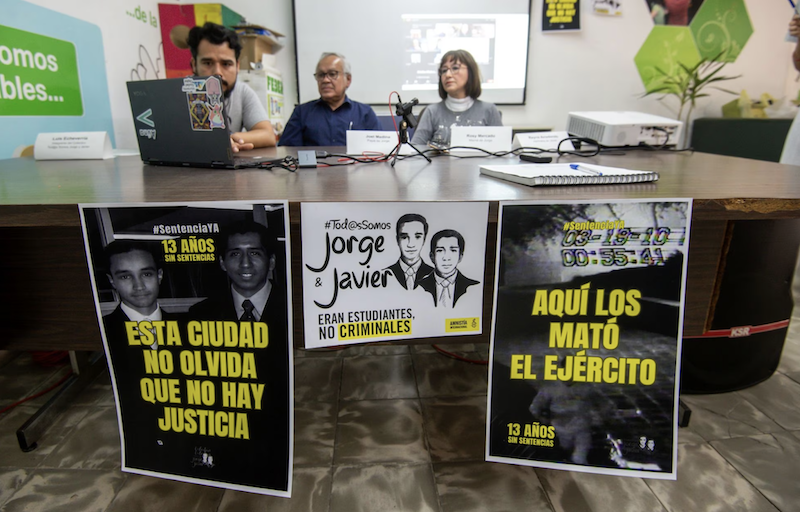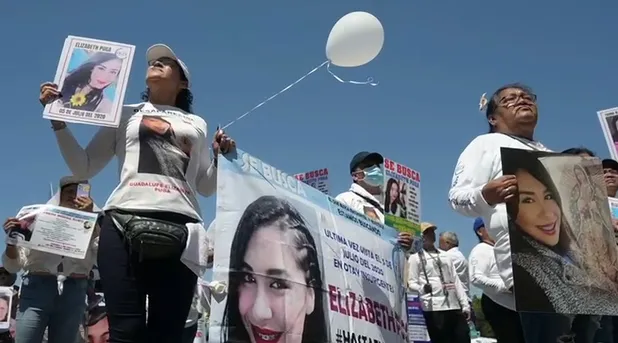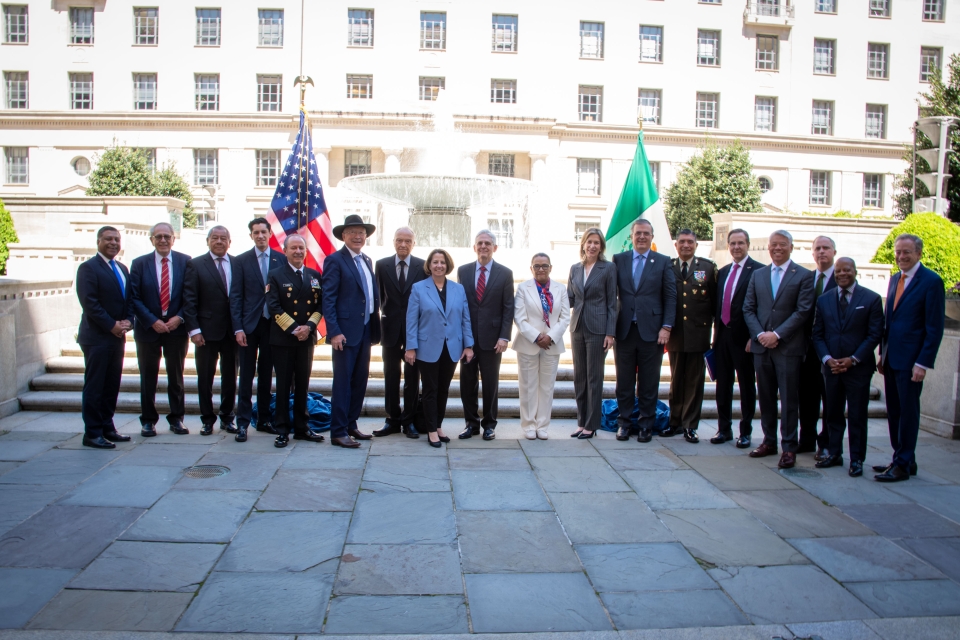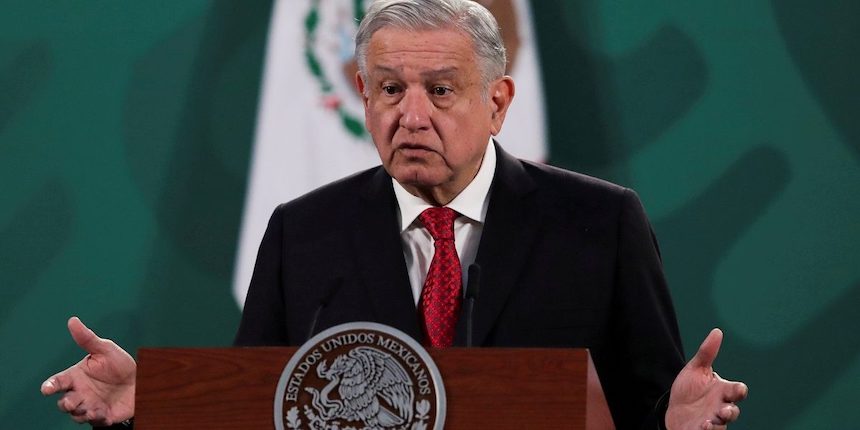
08/09/12 (written by cmolzahn) – A federal judge issued formal arrest orders on August 1 for four generals of the Mexican Army (Secretaría de la Defensa Nacional, SEDENA), along with a lieutenant and a major accused of working with the Beltrán Leyva Cartel to traffic cocaine through Mexico. All of the men are accused of accepting bribes from the Beltrán Leyva Cartel in exchange for intelligence regarding military operations and protection. On August 6, the judge ruled that the men would stand trial on charges of protecting and facilitating the cartel’s operations, despite requests for more time from the officers’ attorneys.
In May, three of the generals – Tomás Ángeles Duahare, former Army assistant secretary (subsecretario de la Defensa Nacional) and also former military attaché in Washington, D.C., Brigadier General Roberto Dawe González, and retired General Ricardo Escorcia Vargas – had been placed under arraigo (a 40-day detention period reserved for organized crime suspects pending formal charges), along with retired Lieutenant Colonel Silvio Isidro de Jesús Hernández Soto. Hernández Soto had also served as director of the Sinaloa ministerial police. A district court judge found that the Attorney General’s Office (Procuraduría General de la República, PGR) had provided sufficient evidence to formally arrest the men, who were moved to a maximum-security federal prison in the State of Mexico. In addition to the three officials under arraigo since May, the district judge issued an arrest order for Brigadier General Ruben Pérez Ramírez on drug trafficking charges. Pérez Ramírez, who was arrested on unrelated charges in late 2011, was singled out by a protected witness known as “Jennifer” (identified as Roberto López Nájera of the Beltrán Leyva cartel) as being involved in General Dawe’s bribery operation, conspiring in 2007 to arrange for shipments of cocaine from Colombia and Venezuela to pass through the Cancún airport. Pérez Martínez was commander of the military garrison in the area at the time, and López Nájera claims that Pérez put him in contact with military personnel at the airport, telling him that he did not want direct involvement in the arrangements. The district court judge also issued an arrest warrant for Major Iván Reyna, who the PGR says acted as an intermediary between drug traffickers and generals Ángeles Dauahare and Escorcia Vargas.
The arrest order also included alleged drug traffickers Édgar Valdez Villarreal, “La Barbie;” José Gerardo Álvarez Vázquez, “El Indio;” José Antonio Ramírez Suaza, “El Arquitecto;” and Denis Gerardo Rodríguez Pacheco, “El Denis.” Valdez Villarreal, Álvarez Vázquez, and Ramírez Suaza were all former members of the Beltrán Leyva Cartel who formed a splinter group that emerged following the death of then cartel leader Arturo Beltrán Leyva in December 2009. The alleged money-for-intelligence schemes happened during 2007 and 2008, when the Beltrán Leyva Cartel was still in tact. In addition to drug trafficking charges (delitos contra la salud), Valdez Villarreal faces homicide charges, as does Rodríguez Pacheco.
The officials have maintained their innocence, and since their detentions in May, there have been allegations of abuses by the PGR. During his appearance before the State of Mexico district judge, General Ricardo Escorcia Vargas claimed that agents in the PGR’s organized crime unit (Subprocuraduría de Investigación Especializada en Delincuencia Organizada, SIEDO) had coerced him into signing a declaration affirming that he had dealt with the Beltrán Leyva Cartel. He has reportedly filed a complaint with the National Human Rights Commission (Comisión Nacional de los Derechos Humanos, CNDH). In addition, according to some sources, including Milenio, General Pérez Ramírez is being treated as a collaborating witness by the PGR, and as such could receive a sentence of fewer than ten years if found guilty. The decision to grant special treatment could stem from a statement from protected witness “Jennifer” that Pérez Ramírez collaborated with the Beltrán Leyva Cartel to avoid conflict with the group, and not for financial gain. The PGR has refused to reveal his whereabouts.
A likely challenge for the PGR in prosecuting the case is their heavy reliance on known drug traffickers as witnesses against the generals. An inconsistency has already emerged in the statements made by Sergio Villarreal Barragán, referred to in PGR documents as “Mateo,” who at the time of the alleged bribes was second in command of the Beltrán Leyva Cartel. Villarreal is now cooperating with the PGR on the case against the generals. He initially told investigators that he had witnessed a meeting between General Ángeles and members of the cartel in July 2008, at which $5 million (USD) changed hands. However, he later corrected himself, saying that the meeting happened in July 2007. The attorney of General Ángeles pointed out that his client was demonstrably out of the country in July 2008, suggesting that the PGR changed the date of the alleged meeting to adjust for this revelation. Moreover, Edgar Valdez Villarreal and Gerardo Álvarez, both of whom were active in the cartel at the same time, have denied any knowledge of ties between the generals and the Beltrán Leyva organization. The generals’ attorneys have pointed to these statements as evidence of a weak prosecutorial case against their clients, and have expressed confidence that they will be exonerated. They have also requested that Valdez Villarreal be subpoenaed to make his statements in court. Moreover, it was reported on August 3 that the PGR has not been able to locate one of its key witnesses, Leopoldo Vázquez, who allegedly served as an intermediary between the Beltrán Leyva Cartel and Lieutenant Colonel Hernández Soto.
As the criminal proceedings move forward, the unprecedented arrest of six high-ranking military officers represents a challenge to the image of the Mexican armed forces, which have long enjoyed a public perception of being relatively immune to corruption, particularly when compared to Mexico’s police forces. However, public security analysts have argued that, with the increased use of the armed forces in domestic law and order functions, military personnel have become increasingly vulnerable to the corrupting influences of organized crime, a point underscored by these recent charges. The Mexican government, however, is attempting to cast a more positive light on the situation. Óscar Vega Marín, executive secretary of the National Public Security System (Sistema Nacional de Seguridad Pública, SNSP), said that the generals’ arrest serves as an example to all public servants who abuse their positions, regardless of who they are, and that this reaffirms the zero-tolerance policy toward impunity set in motion by the Calderón administration.
Sources:
“Un juez dicta orden de aprehensión contra tres generales mexicanos.” CNNMéxico. July 31, 2012.
Otero, Silvia. “Juez dicta arresto contra cuatro generales por narco.” El Universal. August 1, 2012.
Mosso, Rubén. “’Me obligaron a firmar’, acusa general Escorcia.” Milenio. August 2, 2012.
De la Luz González, María. “PGR consigna a otro general.” El Universal. August 3, 2012.
“Abogado de General acusa a PGR de manipular expediente.” Grupo Fórmula. August 3, 2012.
Redacción. “PGR ‘pierde’ a testigo del caso de generales.” El Economista. August 3, 2012.





Pingback: High-ranking officials accused of organized crime, released from prison | Justice in Mexico